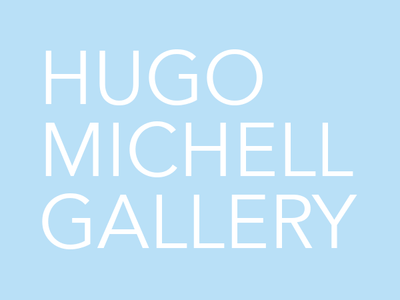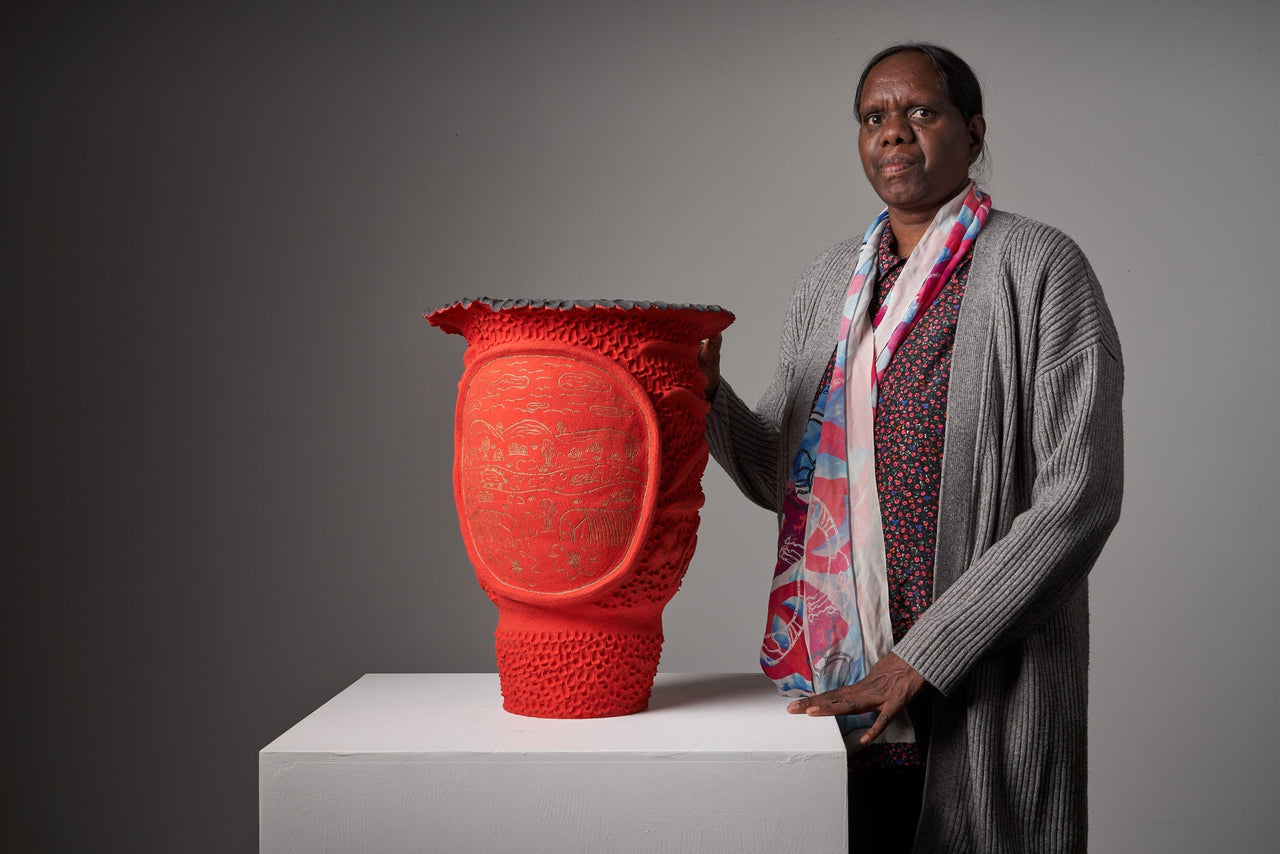Tarnanthi
‘Wäŋa as Muse’ brings together five Yolŋu artists from The Buku-Larrŋgay Mulka Art Centre; Manini Gumana, Napunda Marawili, Marrnyula Munuŋgurr, Binygurr Wirrpanda and Gutiŋarra Yunupiŋu. This exhibition features the innovative works of a group of artists who have each developed a unique way of depicting the identity of the land which inspires them.
Josina Pumani’s ceramic vessels and paintings tell the story of the Maralinga bomb testing undertaken in the 1950-60s. Pumani explores this lasting physical and mental impact on Country and Aṉangu people, using vibrant colour and patterned spiralling cylindrical forms. Currently working out of the APY Art Centre Collective, Pumani was born in Mimili.
Hugo Michell Gallery are proud to partner with Bird in Hand Winery for this opening event.
Hugo Michell Gallery invites you to a special event in partnership with Tarnanthi. Join us for an ‘In Conversation’ between artist Djambawa Marawili AM and Will Stubbs, Co-ordinator of the Buku-Larrnggay Mulka Centre.
For this stellar exhibition, some of today’s foremost and pioneering Yolŋu artists come together as a group, or miṯtji. The exhibition demonstrates the collective revolutionary energy that inspires and emboldens artists from the same dynamic art centre, even as they work independently of each other. Together the artists push boundaries and conventions at Buku-Larrnggay Mulka Centre, at Yirrkala in north-east Arnhem Land – yet each in their own boldly creative direction.
Showing works from Gunybi Ganambarr, Malaluba Gumana, Manini Gumana, Djambawa Marawili AM, Noŋgirrŋa Marawili, Dhuwarrwarr Marika, Baluka Maymuru, Nyapanyapa Yunupiŋu, Garawan Waṉambi.
We look forward to seeing you on Saturday the 19th of October from 3pm.
Light refreshments provided.
Gunybi Ganambarr | Manini Gumana | Malaluba Gumana | Djambawa Marawili AM | Noŋgirrŋa Marawili | Dhuwarrwarr Marika | Baluka Maymuru | Garawan Waṉambi | Nyapanyapa Yunupiŋu
Hugo Michell Gallery acknowledges the Kaurna people as the traditional custodians of the Adelaide region, and that their cultural and heritage beliefs are still as important to the living Kaurna people today.


